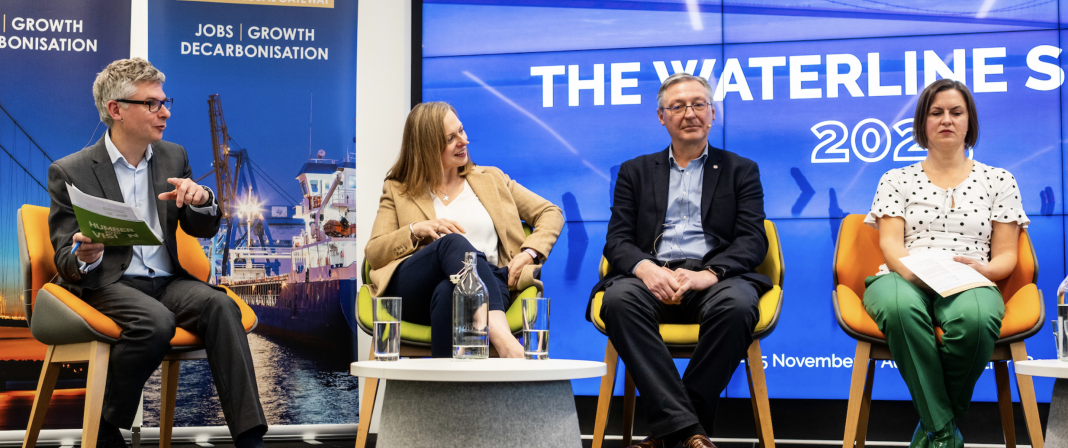November saw the return of The Waterline summit, the Humber’s largest decarbonisation event, where businesses large and small come together with academics, industry experts and young people to learn, discuss and tackle the climate challenge.
The year’s event closed with an informative panel discussion about shaping a sustainable Humber, featuring panellists from Humber Energy Board and the Humber Freeport. Hosted by Richard Gwilliam, UK BECCS Programme Director for Drax, speakers included our own Jo Barnes, Managing Director of Sewell Estates and board member of Yorkshire Energy Park and Humber Freeport, Katie Hedges of CATCH, Chris Gilbert of Phillips 66, Simon Green of Humber Freeport and Harry Jones, Freeports Programme Director for the Department of Levelling Up, Housing and Communities.
Discussion centred around the Humber Freeport, which has three main roles: setting the environment for new investment, accelerating innovation and allocating seed capital to companies aligned with the Freeport.
Harry Jones, the UK’s Freeports Programme Director, was in the area to see the improvements that the Humber Freeport is already inspiring. He said visiting the Humber was an inspiration to his work across the country. “The path to net zero has to go through the Humber,” he said, adding that after working on decarbonisation papers in Whitehall, it was motivating to visit the Humber and see the work happening in practice.
One of the flagship projects highlighted was a Sewell Group investment project, Yorkshire Energy Park, a next generation energy and technology business park under development to the East of Hull. An 86 hectare site and £200m investment, attracting investment from the energy, data, technology and manufacturing sectors, the scheme has the potential to create 4,480 jobs, along with apprenticeship and training opportunities for local people. The project is aiming to be sustainable in its build, as well as the industries involved, with land set aside for wildlife and local community groups.
A lot of the conversation revolved around discussion of the skills shortage for many industries involved with decarbonisation, with all panellists keen to see further incentives for companies to take on apprentices and trainees.
Jo Barnes spoke about how Sewell Group has pledged to triple the company’s intake of graduates, apprentices, trainees and work experience participants through their GATEWay scheme. She said that any decarbonisation work by business and industry needed to reach out to the region’s more deprived communities, ensuring any opportunities for work and upskilling were made available to these sections of society.



